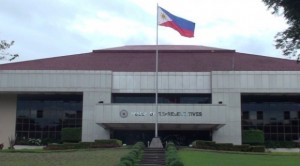MANILA, Philippines—The Freedom of Information (FOI) bill passed a critical hurdle at the House of Representatives on Wednesday after the budget for its implementation was approved by the appropriations committee.
Akbayan Rep. Barry Gutierrez, one of the authors of the consolidated bill, said the appropriations committee has approved the budget component of the FOI bill without objections.
The FOI bill, which has the support of civil society and media organizations, will allow public access to all official records, except state secrets and other classified communications.
The Senate has already passed its own version of the FOI bill.
But it has moved very slowly in the lower chamber, with President Aquino refusing to certify it as urgent despite the public clamor for its passage.
“We are happy with the decision of the appropriations committee to approve the appropriations provision of the bill, consequently approving the FOI budget,” Gutierrez said in a statement.
He said the budget was one of the crucial components of the bill that would determine if it could be successfully implemented.
“Without it, our efforts to pass the bill to ensure government transparency and practice of governance will simply end up as a shot in the dark,” he said.
Access to any record
Under Section 30 of the proposed FOI law, the funds needed to carry out its provisions are to be charged against the agencies’ current budget, and thereafter included in the budget law.
After clearing the budget, the FOI bill will be delivered back to the public information committee and then transmitted to the plenary for debates.
Under the FOI bill, every Filipino citizen shall be given access to “any record under the control of a government agency,” including “official acts, transactions or decisions, as well as government research data used as a basis for policy development.” The bill emphasizes a “legal presumption in favor of access to information,” in which any request for information may be denied only if it clearly falls under 11 exceptions.
These include classified state secrets relating to defense and national security concerns, records of minutes and advice given and opinions expressed during decision-making or policy formulation of the President, and other security-related information whose disclosure may compromise military or law enforcement operations.
Also excepted are drafts of executive, administrative, regulatory and judicial orders, resolutions, decisions, memoranda or audit reports are also exempted, as well as any information obtained by any congressional committee in executive session, and privileged communications in legal proceedings.
